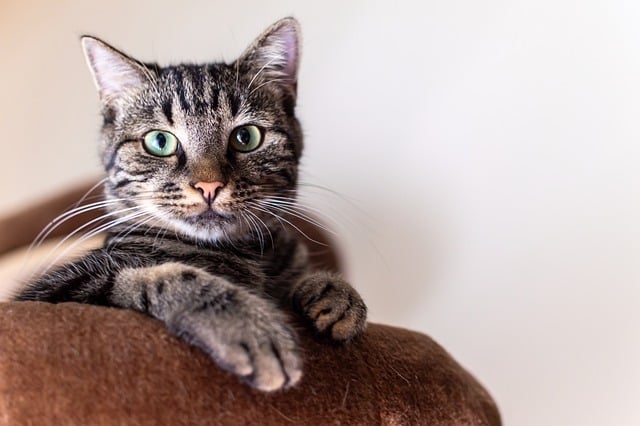The importance of providing a balanced diet for your cat cannot be overstated. A well-nourished cat is a happy and healthy cat, while a diet lacking essential nutrients can lead to a range of health problems. In this article, we will explore the key factors to consider when creating a balanced diet for your feline friend.
A balanced diet for cats should include a mix of protein sources, fats, carbohydrates, vitamins, and minerals. Cats are obligate carnivores, meaning they require a diet rich in animal-based nutrients. The ideal diet should be high in protein (at least 30% on a dry matter basis), moderate in fat (around 20%), and low in carbohydrates.
Protein sources for cats include meat, poultry, fish, eggs, and dairy products. Meat should be cooked and not raw or undercooked, as this can pose a risk of bacterial contamination. Fish and seafood are also excellent protein sources, but they should be cooked thoroughly to avoid any mercury poisoning risks.
Fats play an essential role in maintaining your cat’s overall health. The ideal fat content is around 20%, which comes from sources like meat, poultry, and fish. Fatty acids such as omega-3 and omega-6 are crucial for healthy skin, coat, and joint function. Avoid adding extra fats to your cat’s diet, as this can lead to obesity and other health issues.
Carbohydrates are not essential for cats and should be limited in the diet. However, some carbohydrate sources like whole grains, fruits, and vegetables can provide fiber and vitamins. The key is to limit these sources to a small percentage of the overall diet.
Vitamins and minerals are also crucial for maintaining your cat’s health. Vitamin A is essential for vision, immune function, and skin health. Vitamin D supports bone growth and immune function. Iron is vital for healthy red blood cells, while calcium is necessary for strong bones. A high-quality cat food should contain these nutrients in adequate amounts.
Meal planning is also an important aspect of creating a balanced diet for your cat. Aim to provide 2-3% of your cat’s body weight in dry matter per day, divided into 2-3 meals. You can do this by feeding a high-quality commercial food or by preparing homemade meals using the guidelines above.
Feeding your cat a variety of foods can also help ensure they receive all the necessary nutrients. Rotate between different protein sources and include some fruits and vegetables in their diet, but avoid overdoing it. It’s also essential to monitor your cat’s weight, body condition score, and overall health while implementing these changes.
Some final tips for creating a balanced diet for your cat include:
- Consult with a veterinarian before making any significant changes to your cat’s diet. They can help you determine the best course of action based on your cat’s age, health status, and breed.
- Choose high-quality commercial foods that meet your cat’s nutritional needs. These foods are formulated to provide essential nutrients and may be easier to incorporate into a balanced diet than homemade meals.
- Avoid over-supplementation, as this can lead to an imbalance of essential nutrients. Stick to a well-formulated commercial food or consult with a veterinarian for personalized advice.
- Consider your cat’s life stage. Kittens require different nutrient profiles than adult cats, while pregnant or nursing cats need extra calories and nutrients. Consult with a veterinarian to determine the best diet for your cat’s life stage.
- Be patient and monitor progress, as it may take some time to adjust to new foods or changes in feeding habits. Monitor your cat’s weight, body condition score, and overall health regularly.
In conclusion, creating a balanced diet for your cat requires careful consideration of essential nutrients, meal planning, and monitoring progress. By following the guidelines outlined above, you can provide your feline friend with the nutrition they need to thrive. Remember to always consult with a veterinarian if you have any questions or concerns about your cat’s diet.
Tags:
- cat nutrition
- better healthy food for cats
- healthy diets for pets
- best foods for felines
- balanced diets for cats

